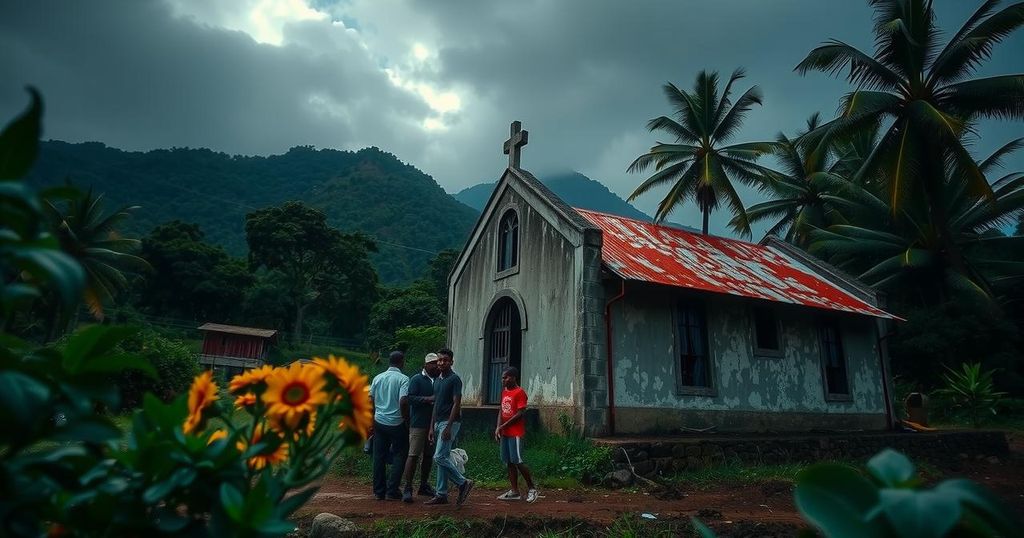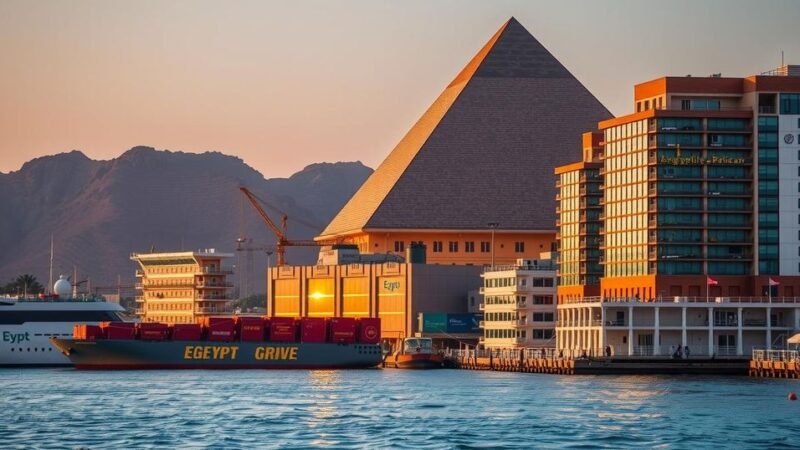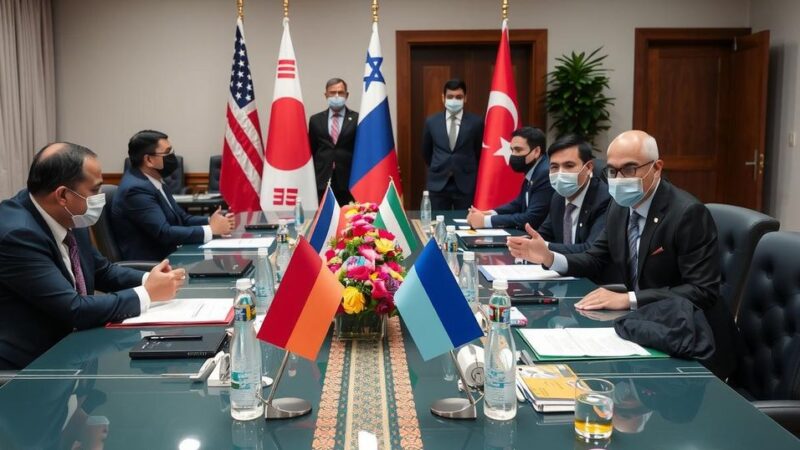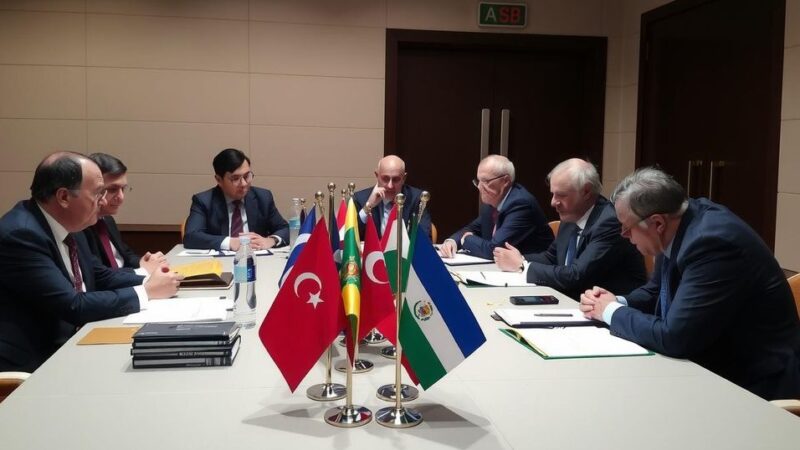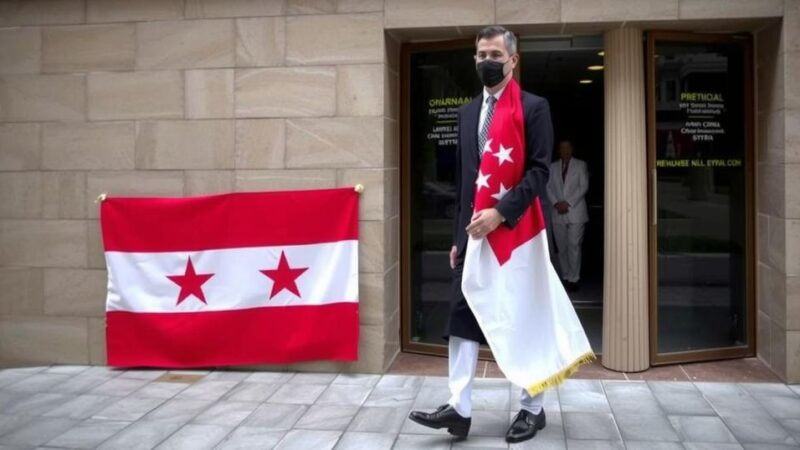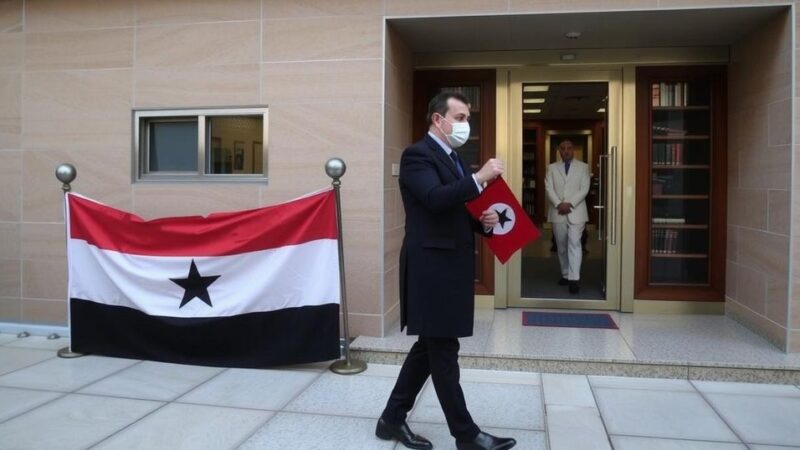The Catholic Church in eastern DRC is striving to offer hope amid extreme humanitarian conditions caused by violent conflicts. The church’s leadership emphasizes the importance of their mission to support the displaced and afflicted populations, particularly through healthcare initiatives. The ongoing struggles for resources reflect the profound impact of prolonged violence on community wellbeing and infrastructure.
In the eastern Democratic Republic of Congo (DRC), where one of the world’s most severe humanitarian crises prevails, the Catholic Church is striving to provide not just essential needs such as food, shelter, and medicine but also a vital sense of hope. Bishop Sikuli Paluku Melchisédech of Butembo-Beni highlights that the church’s efforts are integral to its mission, stating, “We have a vision; it is the mission of the church that we are in the process of accomplishing, according to the circumstances of the moment and the possibilities that we have to intervene with our sisters who are in need.” Indeed, while resources may be limited, the unwavering faith of those involved plays a crucial role in their endeavors. The persistent conflict between the Allied Democratic Forces (ADF) and the 23 March Movement (M23) has exacerbated an already dire situation, driving many from their homes in search of safer havens. The ongoing violence has not only resulted in a heartbreaking loss of life but has also crippled the region’s health care system, stifled education, and devastated agriculture. Francois Kaputu, Caritas programs coordinator within the Butembo-Beni diocese, described the overwhelming difficulties faced by the local population, stating, “For over two decades, the diocese of Butembo-Beni has been faced with an unbearable social, security and humanitarian situation.” He noted that the ADF and M23 control vast areas of the region, subjecting residents to relentless violence and displacing countless families. As a result, communities are suffering from severe poverty, loss of agricultural means—the backbone for 80 percent of the population—and profound psychological trauma. The humanitarian situation has been worsened by widespread looting, which has not only stripped away personal possessions but also devastated health infrastructure. Kaputu expressed concern regarding the ongoing M’Pox epidemic, observing that recent violence has made it all the more difficult for medical facilities to store essential supplies. “The priority needs include essential survival items or household and social products. Additionally, health remains a significant concern.” Fortunately, a brief pause in hostilities has allowed for some humanitarian aid to reach the areas most affected. Despite the chaotic backdrop, the Catholic Church remains resolute in its mission to restore hope within these communities. Kaputu emphasized the urgent need for resources, inviting those of goodwill to support their efforts. He concluded, “It is a situation that requires much more resources than are available. We need good-willed people who can support the diocese through this good-willed ability to continue to respond to their needs.” The church continues to empower individuals, particularly youth, through education and skills training as part of its holistic approach to recovery and resilience. In an address to health care workers, Bishop Sikuli acknowledged their dedication amidst adversity. “Despite the insecurity and difficult situations in our diocese, you continue to do your jobs to relieve the sick,” he stated, reminding them of the importance of their mission. He encapsulated the church’s approach with the principle, “You receive freely, give freely too.”
The Democratic Republic of Congo (DRC) is facing one of the world’s most critical humanitarian crises. The ongoing violence, largely driven by battles between rebel factions for control over the region’s rich mineral resources, has led to widespread displacement, loss of life, and severe disruptions in essential services such as healthcare and agriculture. The Catholic Church, specifically through the Butembo-Beni diocese, is working diligently to provide not only immediate relief in the form of food and shelter but also to instill hope in the beleaguered population. Their endeavor reflects a broader mission to uphold the dignity and wellbeing of those affected by the ongoing conflict.
In conclusion, the Catholic Church in eastern DRC is navigating an extraordinarily challenging humanitarian crisis, marked by violence and displacement due to ongoing conflicts. Through its initiatives, led by figures such as Bishop Sikuli Melchisédech and Francois Kaputu from Caritas, the church seeks to not only address immediate needs but also to foster a spirit of hope and resilience among the affected communities. Their efforts underscore the critical role faith-based organizations play in providing both material aid and spiritual support in times of profound crisis.
Original Source: cruxnow.com

